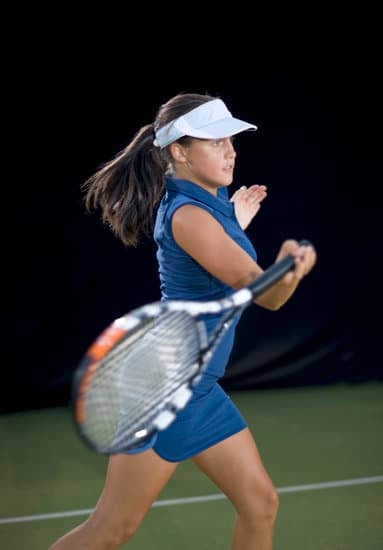
A tailored fitness program is paramount for young tennis players looking to reach the professional level. By focusing on agility, strength, endurance, and flexibility, they will develop the physical attributes necessary to compete at a high level. It’s important for these athletes to strike a balance between on-court training, which hones their skills and technique, and off-court conditioning that builds their overall fitness and resilience.
Mastering the fundamentals of each stroke—forehand, backhand, serve, and volley—is critical for young players who aspire to go pro. By refining these techniques, they will establish a strong foundation upon which to build their game. Consistency, accuracy, and power should be the primary goals for each stroke, ensuring that they can both neutralize opponents’ attacks and generate their own offensive opportunities.
Efficient footwork is a cornerstone of high-level tennis. Proper movement and positioning on the court allow players to maximize their potential and maintain a competitive edge. To improve their footwork, aspiring pros should incorporate drills, such as shadowing and ladder exercises, into their training routines. These exercises help develop agility, speed, and balance, enabling players to reach balls faster and recover more quickly between shots. We also highly recommend mastering tennis patterns which will give you the greatest chance for success!

By concentrating on these key areas of physical and technical development, young tennis players will be well on their way to building the foundation necessary to compete at a professional level. Through dedication, perseverance, and targeted training, these athletes can bridge the gap between their current abilities and the skills required to excel in the world of professional tennis.
Mental and Tactical Development
Cultivating mental toughness is essential for aspiring tennis pros. Resilience, focus, and self-belief are the hallmarks of a mentally strong athlete. Players must learn to manage stress, emotions, and momentum during matches to stay composed and perform at their best. Techniques such as visualization, mindfulness, and positive self-talk can help young athletes develop a strong mental game.
Matchplay Experience
Competing in tournaments and high-level practice matches is crucial for the development of young players. These experiences expose them to various opponents, playing styles, and court conditions, helping them adapt and refine their strategies. Consistent matchplay also builds confidence and prepares athletes for the pressure and intensity of professional competition.
Pattern Recognition and Anticipation
Recognizing patterns in opponents’ games allows players to make better tactical decisions on the court. By understanding their opponents’ habits and tendencies, aspiring pros can anticipate their moves and capitalize on opportunities. Regularly reviewing match footage and analyzing opponent’s strategies can help players develop this critical skill.
Developing a Game Plan

Working with an experienced coach is essential for aspiring tennis pros. A knowledgeable coach can provide valuable insights and guidance to help players develop a personalized training program. They can also address technical, tactical, and mental aspects of the game, ensuring that athletes are well-rounded and prepared for the challenges of professional tennis.
Establishing achievable short-term and long-term goals helps players stay motivated and focused on their development. Regular evaluation of progress and making adjustments to training plans is critical to ensuring continued improvement. By setting realistic goals, young athletes can monitor their growth and celebrate their achievements along the way.
Emphasizing Quality Over Quantity
Focusing on targeted drills and match simulations is more important than simply spending hours on the court. Quality training ensures that players are addressing specific areas of their game and making the most of their practice time. By emphasizing quality over quantity, aspiring pros can maximize their improvement and minimize the risk of injury and burnout.
Watching professional matches and studying the strategies of top players can provide valuable insights for young athletes. By observing how elite players handle pressure, construct points, and exploit their opponents’ weaknesses, aspiring pros can incorporate elements of their game into their own. This ongoing learning process will help them develop a deeper understanding of tennis and elevate their performance on the court.
Nutrition and Recovery
A well-balanced diet and proper recovery techniques are essential for aspiring tennis pros to maintain peak performance. Players should consult a sports nutritionist to create a tailored plan that meets their specific needs, ensuring they receive the necessary nutrients for sustained energy and muscle recovery. Incorporating rest days, stretching, and other recovery methods like massage and ice baths can help prevent injury and maintain overall health.

Attending tennis camps, workshops, and events is a great way for aspiring pros to build a strong network within the tennis community. These connections can lead to future opportunities, such as sponsorships, coaching, or professional partnerships. Networking also allows players to learn from others’ experiences and gain valuable insights into the world of professional tennis.
Developing a Growth Mindset
Embracing challenges and learning from mistakes is vital for a successful tennis career. Aspiring pros should adopt a growth mindset, viewing setbacks as opportunities for improvement. Maintaining a positive attitude throughout the journey, even in the face of adversity, will help players persevere and continue to grow both on and off the court.
In this article, we’ve discussed the key strategies and techniques for aspiring tennis pros, emphasizing the importance of a holistic approach to development. By focusing on physical, technical, mental, tactical, and off-court aspects, young players can build a strong foundation for a successful professional tennis career. It’s crucial for these athletes to stay dedicated, disciplined, and passionate about their journey, as they work towards their dreams of competing on the world stage.
